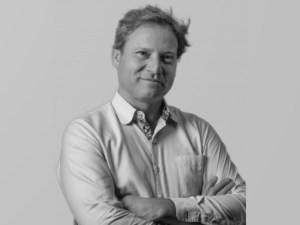Society is digitising. More and more people have smartphones or other connected devices, and digital health care solutions are increasingly available. One could highlight many benefits of eHealth: it is accessible; it is personalised, yet still massively available at low cost; and it is anonymous, which is especially welcome when it comes to taboo subjects. However, public regulation of eHealth resources and the research to verify their effectiveness still lag far behind the frantic pace in which the technology is unfolding. At this writing, about 325,000 apps are available that have something to do with health. A multitude of these are questionable in terms of both quality and health benefits.
“Far too often, you can download things like applications from an app store without thinking, and you often even pay for them, with no proof whatsoever that they work.”
It is important to ensure that eHealth applications get reliably tested to verify their effectiveness. Especially in view of the thousands of tiny companies that are now jumping on the bandwagon, we need to take action to keep slick operators who flog untested eHealth treatments from gaining the upper hand. We have to ensure that the public image of eHealth will not get hyped into a bubble.
National eHealth Living Lab
The National eHealth Living Lab (NeLL) is a Dutch cooperative initiative founded by the Leiden University Medical Centre (LUMC) in 2018. It is an independent research institute whose mission is to develop eHealth applications in close collaboration with stakeholders in the Dutch and international health and technology sectors. NeLL links together health care patients, consumers, health practitioners, professionals, scientists, academics, students, organisations and institutions. It will enable them to develop optimal eHealth solutions by sharing knowledge, contacts and experiences. NeLL’s working focus is explicitly social as well as academic. By assembling existing and new eHealth projects under one roof, it hopes to overcome the current fragmentation in eHealth resources. Important focuses at NeLL are on eHealth in old age, eHealth for the low-skilled and eHealth in long-term illness.
NeLL can draw on considerable specialised knowledge of eHealth research methodologies. Every project is grounded in three basic criteria:
- Evidence based. Researchers will report and publish about things that don’t work as well as about those that do.
- User-centred design. End users will be engaged in researching and developing a product or service from the very beginning.
- Innovation based on needs, not prospects. An example is the platform Thuisarts.nl, which 90 per cent of Dutch GPs are known to consult during patient visits. The platform thus serves as an extension of the doctor’s practice.
Cooperation is essential
Collaboration in NeLL is not confined to medical practitioners but incorporates experiential experts, psychologists, designers, app developers and data scientists as well. NeLL stands for open science, and therefore the explicit aim is to share knowledge and work together with all other stakeholders involved with eHealth in the Netherlands. Cooperative arrangements have been formed with a range of organisations, which can draw on each other’s strengths and capabilities. The Pharos expertise centre on health disparities, for example, provides access to online product testing panels.
Taking advantage of the synergy generated by bringing together divergent perspectives and research backgrounds, we are creating a hub to accelerate the exchange of the applied knowledge. Our focus is on blended care, which employs eHealth resources as a supplement to existing health care provision, and not as a complete replacement. We will work to enable individualised treatment methods, basing our approach not on traditional methodological thinking and biological outcomes, but on working towards goals that the individuals themselves want to achieve.
Providing a platform for good practices
The independent research institute has already won considerable approval. Dozens of research projects are currently underway at NeLL, whose diversity of subjects ranges from telecardiology and smart asthma inhalers to e-coaching for anxiety and depression, and from big data analysis methodologies to action research and the co-creation of eHealth resources. All projects are based on issues stemming from health care practice. Knowledge gained in current projects is conveyed further into new projects.
“We’re a sort of marketplace for matching demand and supply.”
We supply the platform with its ‘good practices’. In that way, we temper hypes that get spun in the media about new health apps, but we also suggest improvements. We therefore hope that important players such as the Dutch health ministry, the National Health Care Institute (ZIN) and health insurance companies will endorse these good practices. Then we can all work together to ensure that superior eHealth applications get implemented into daily health care delivery.
Cyclical learning at home and abroad
As we move towards the future, we will be working with a much more limited set of eHealth interventions – ones that provide genuine added benefit. That means downsizing from over 300,000 to perhaps a few hundred good practices. And the first handful have already been identified! The next essential step will be to transport that knowledge over the Dutch borders and to implement those applications abroad. The Netherlands is a small postage stamp, hidden behind dykes, and it has a health care system of superior quality. Our projects have a tremendous potential to provide quality health resources to other countries, such as China, where hundreds of millions of smartphone owners can benefit from them.
“Currently we speak of NeLL, but we want to grow to become WeLL, the World eHealth Living Lab.”
I hope we will expand cyclical knowledge sharing and also learn from the lessons from abroad. Whereas the Netherlands is often still hindered by existing health infrastructures in implementing eHealth applications, many other countries, especially in the developing world, are making rapid strides. The potentials will continue to amaze us in the future. But to avoid getting trapped in a bubble, we must ensure that the effectiveness of all eHealth resources is validated.

